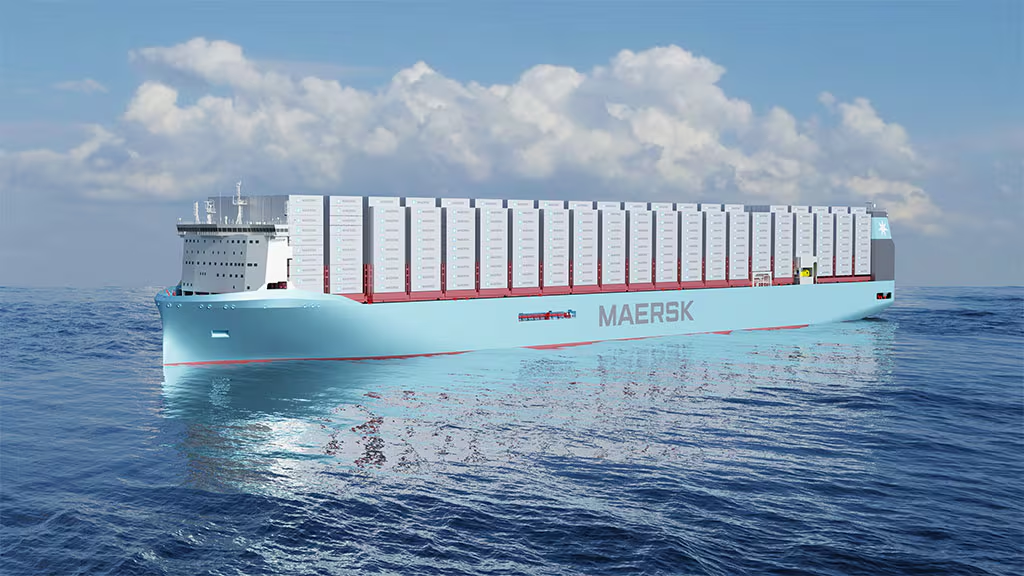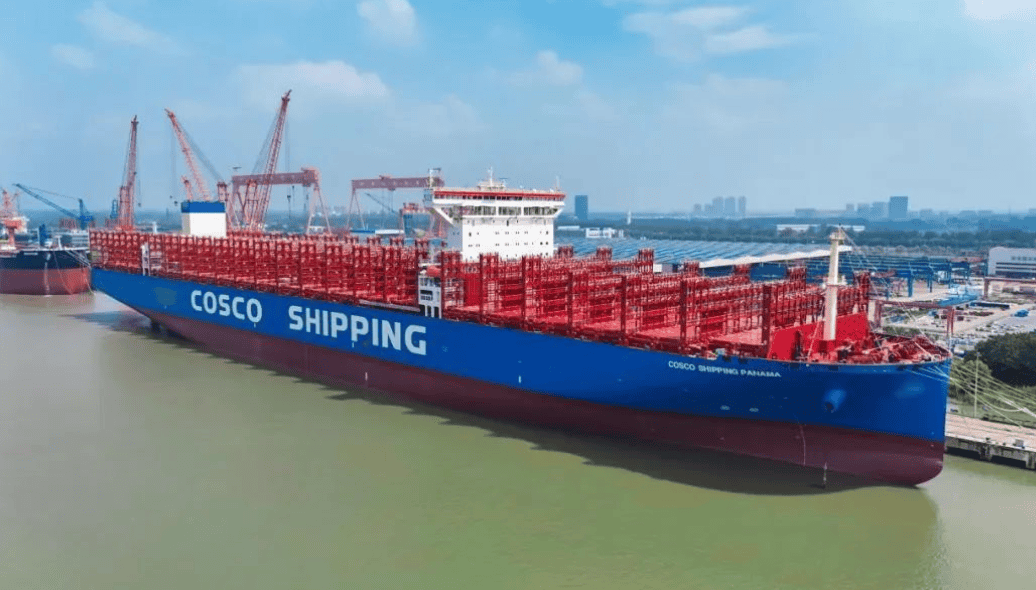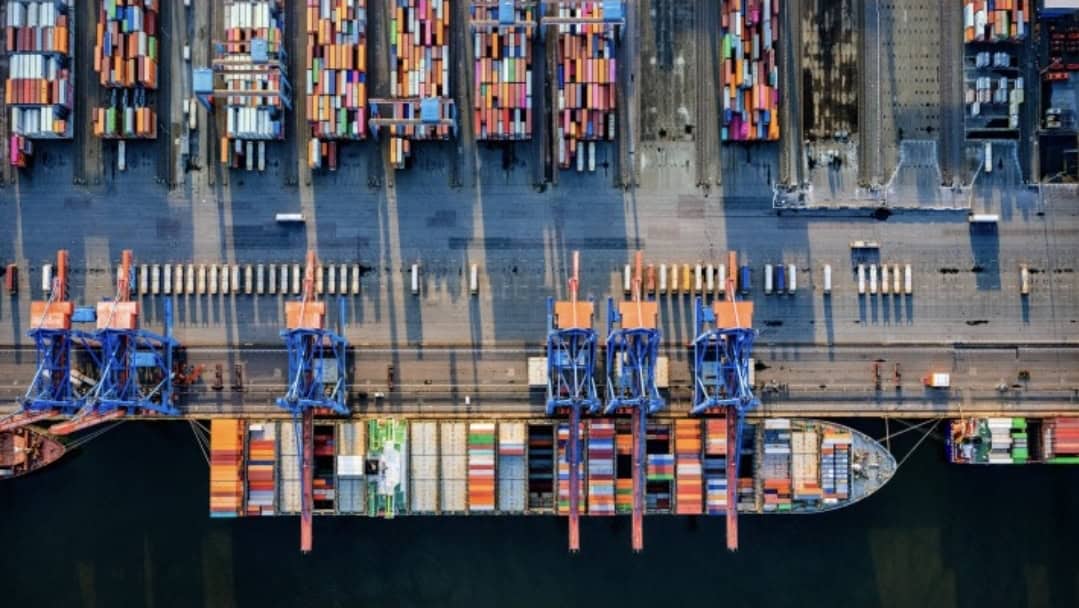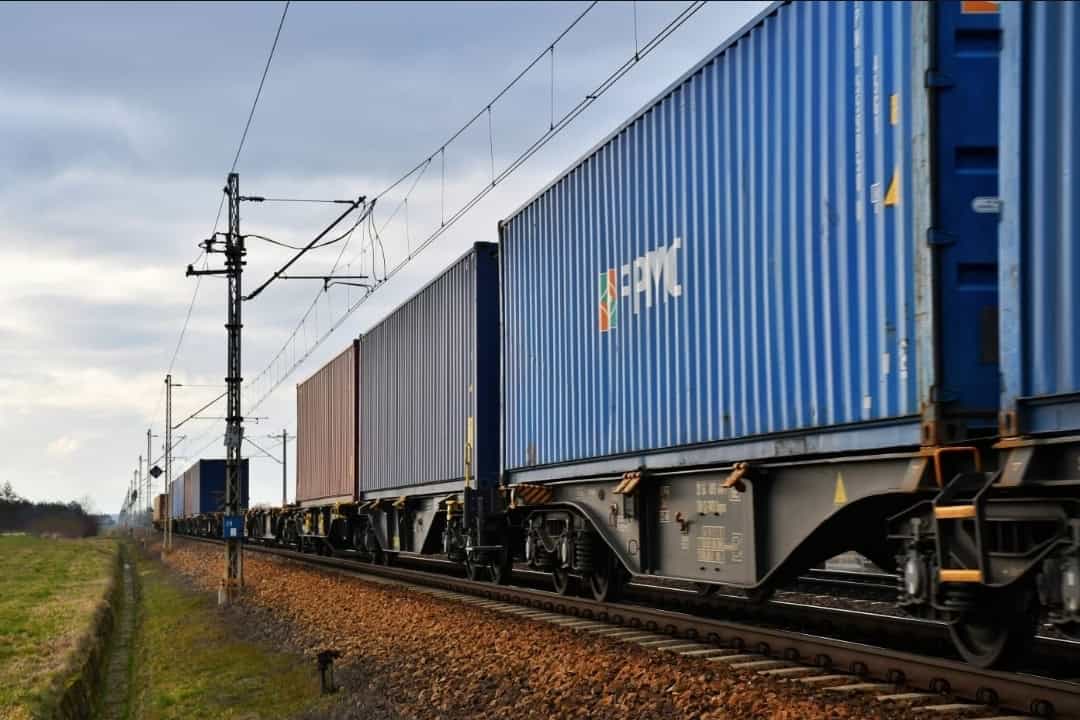The world’s largest container carrier isn’t waiting for the future – it’s building it. Danish shipping giant Maersk has launched an ambitious modernization program for its chartered fleet, covering 200 vessels. It’s one of the most extensive retrofit projects in maritime history – and it’s not just about technology, but also about a shift in mindset: efficiency, sustainability, and responsibility.
From Declarations to Action
In recent years, Maersk has positioned itself as a leader in green transition. Its pledge to achieve net-zero emissions by 2040 sounded impressive – but now, action follows the promise.
While the company continues to expand its fleet of methanol-powered newbuilds, modernizing existing ships offers tangible environmental benefits today.
Together with over 50 shipowners, Maersk is embarking on a mass retrofit campaign targeting its time-chartered fleet – vessels operated long-term but not owned by the company. The upgrades include propeller and bulbous bow replacements, hull optimization, installation of shaft generators, and waste heat recovery systems. All aim to cut fuel consumption and CO₂ emissions by double-digit percentages.
As Ahmed Hassan, Head of Asset Strategy & Strategic Partnerships at Maersk, put it:
“Our chartered fleet accounts for a significant share of our fuel use. If we truly want to cut emissions, we have to take action across the board – not just where we own the vessels.”
Retrofit, Not Revolution
The program already counts 1,500 completed retrofit projects, with another 1,000 planned by 2027. Maersk shares the investment costs with shipowners, creating a genuine partnership where both sides benefit.
The retrofits vary in scope: from propeller optimization and hydrodynamic upgrades to structural changes increasing payload and safety.
This isn’t a flashy shipyard revolution, but rather a methodical evolution – typical of Maersk’s pragmatic approach. In a sector facing mounting regulatory pressure (ETS, FuelEU Maritime), practical modernization may prove far more effective than waiting for next-generation zero-carbon vessels.
A Greener Ocean, a Greener Supply Chain
Although the program focuses on maritime operations, its impact could ripple across the entire logistics network – including rail. Cleaner, more efficient shipping translates into greener intermodal connections between sea and land.
In ports like Hamburg, Rotterdam, or Gdańsk, key gateways to Central Europe’s rail corridors, such improvements could strengthen the competitiveness of sustainable transport chains.
In practice, every single percentage point of fuel savings at sea means thousands of tons of CO₂ saved across the logistics ecosystem. And in the age of the EU Green Deal, that’s becoming a genuine competitive edge.
Setting a New Industry Standard
Maersk hopes its retrofit program will inspire others. Upgrading the existing global fleet could become a new standard for an industry that can’t simply replace thousands of ships overnight. Retrofit is the middle ground – but a powerful one.
Because while zero-emission vessels represent the future, the present still sails on conventional fuels. And it’s in the engines, propellers, and hulls of today’s ships that a quiet revolution is taking place – one that might determine how soon global shipping becomes truly green.



